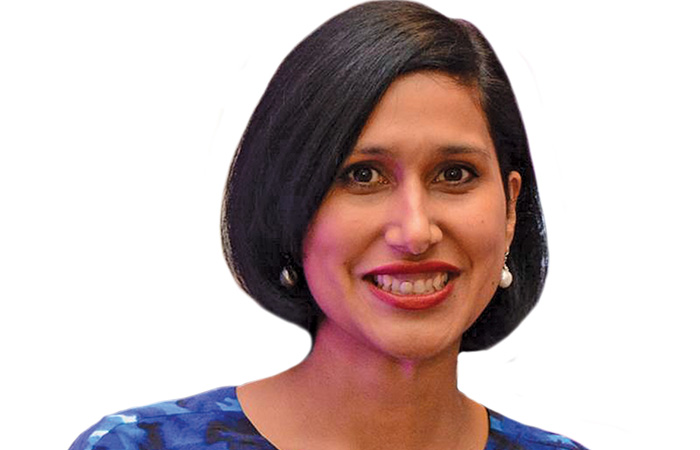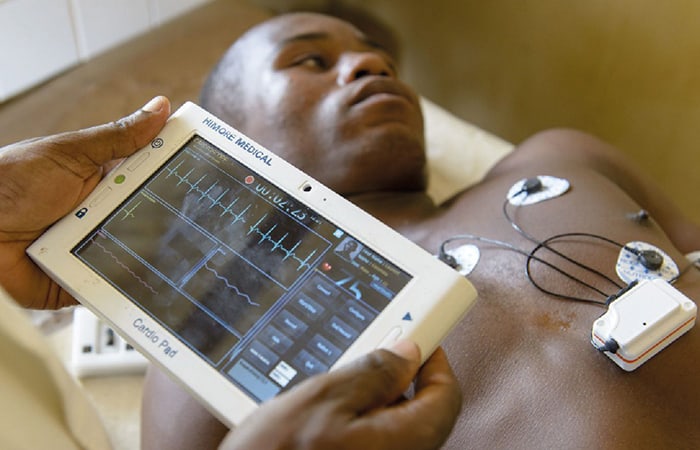 Dr Hayaatun Sillem, chief executive of the Royal Academy of Engineering, says that when resources are scarce, ingenuity thrives, with engineering a key route to changing the world
Dr Hayaatun Sillem, chief executive of the Royal Academy of Engineering, says that when resources are scarce, ingenuity thrives, with engineering a key route to changing the world
Engineers have an essential contribution to make to improving quality of life, including among the world’s most disadvantaged communities. From ensuring access to safe drinking water and adequate sanitation to providing clean energy and reducing waste, engineers are applying their knowledge, experience and creativity to drive the development of innovative solutions that make a difference to people’s lives.
The Royal Academy of Engineering is strongly committed to engaging with engineering entrepreneurs across the world to advance the development and delivery of local, scalable solutions to real-world challenges. By providing them with practical support to build their skills, profile and networks, we can help to make sure that these talented people contribute to socio-economic progress through their innovation-based businesses. In addition, connecting engineering entrepreneurs from developing and emerging markets to the UK’s research, innovation and commercialisation networks helps them to enhance the impact of their work and build links with the UK engineering base.
While our international programmes have been established to build capacity in developing countries, they also deliver important benefits for the UK. International engineers trained here leave with a positive impression of the UK as an innovative and entrepreneurial country, an impact that is crucial at a time when we are seeking to reposition ourselves on the global stage. Just as importantly, the UK engineering community can learn from our international partners. The applications we receive for the Academy’s international awards provide just a glimpse of the outstanding innovations being developed in traditionally resource-poor environments. Engineering requires creativity to solve challenges, and when resources are scarce, ingenuity often thrives.
This is evident in the work of people like Hindu Nabulumba from Uganda, a 2017 finalist in the Academy’s Africa Prize for engineering innovation, who developed her Yaaka network to connect students, academics and trainers on a single social network. Many of the countries we work with have far more diverse engineering professions than the UK, with proportionately more women involved. Hindu’s approach is practical, creating Yaaka as a solution to a problem, and sees engineering as a key route to changing the world.
Since its launch in 2014, the Africa Prize for engineering innovation, supported by The Shell Centenary Scholarship Fund and Global Challenges Research Fund, has helped 56 ambitious and talented innovators from 11 countries across sub-Saharan Africa to scale their innovations to address local challenges. Each year, a shortlist of 16 entrepreneurs receive six months of bespoke business mentoring, training, and networking opportunities, to enable them to turn their prototypes into profitable businesses with genuine economic and social impact.

One such innovation is Cardio-Pad, a custom-made tablet computer, designed by Arthur Zang from Cameroon, the 2016 winner of the Africa Prize, that enables any medical professional to conduct heart examinations quickly and without the need for expensive equipment or specialist training. Cameroon only has around 60 cardiologists for its 22 million people, meaning that access to specialist heart healthcare is almost non-existent for its citizens. Hundreds of Cardio-Pads have now been built and revenue doubled between 2016 and 2017. The device has already been sold in Cameroon, Gabon, India and Nepal, with expansion to Burkina Faso and Congo planned next. The training and mentoring was vital for Arthur, inspiring him to completely rethink his business model.
International collaboration can help entrepreneurs build the networks and relationships needed to grow successful businesses. The 2017 Africa Prize shortlist included James van der Walt from South Africa. His SolarTurtle is a mobile power station that provides instant electrification to remote and unconnected communities. Since being shortlisted the team has developed a new automated version of the power station in collaboration with the University of Liverpool. This collaboration was the result of James’s participation in another Academy programme, Frontiers of Engineering for Development, which brings together engineers from all disciplines to network and engage with their peers on global challenges.
Initiatives such as the Africa Prize play an important role both in raising the profile of engineering and highlighting the critical role it plays in tackling development challenges.
The Academy has, for the second year, taken part in an exciting partnership with HRH The Duke of York’s Pitch@Palace series. Last month, the 16 engineers shortlisted for the 2018 Africa Prize had the opportunity to pitch their innovations directly to an influential audience from the worlds of entrepreneurship, technology, media and investment at a special event at St James’s Palace.
Research and innovation is one of the UK’s greatest strengths, and programmes such as those supported under the Global Challenges Research Fund leverage this world-leading capability to help address major societal issues faced by the world’s poorest. The importance of capacity-building programmes for engineers in developing countries should not be underestimated – but nor should the reciprocal benefit for the UK. These partnerships help deliver real and lasting change for communities as well as connecting the UK with outstanding innovators and markets around the world.




Project to investigate hybrid approach to titanium manufacturing
Sadly they will not be ordering any more presses from Wilkins & Mitchell http://www.historywebsite.co.uk/articles/Darlaston/WM.htm